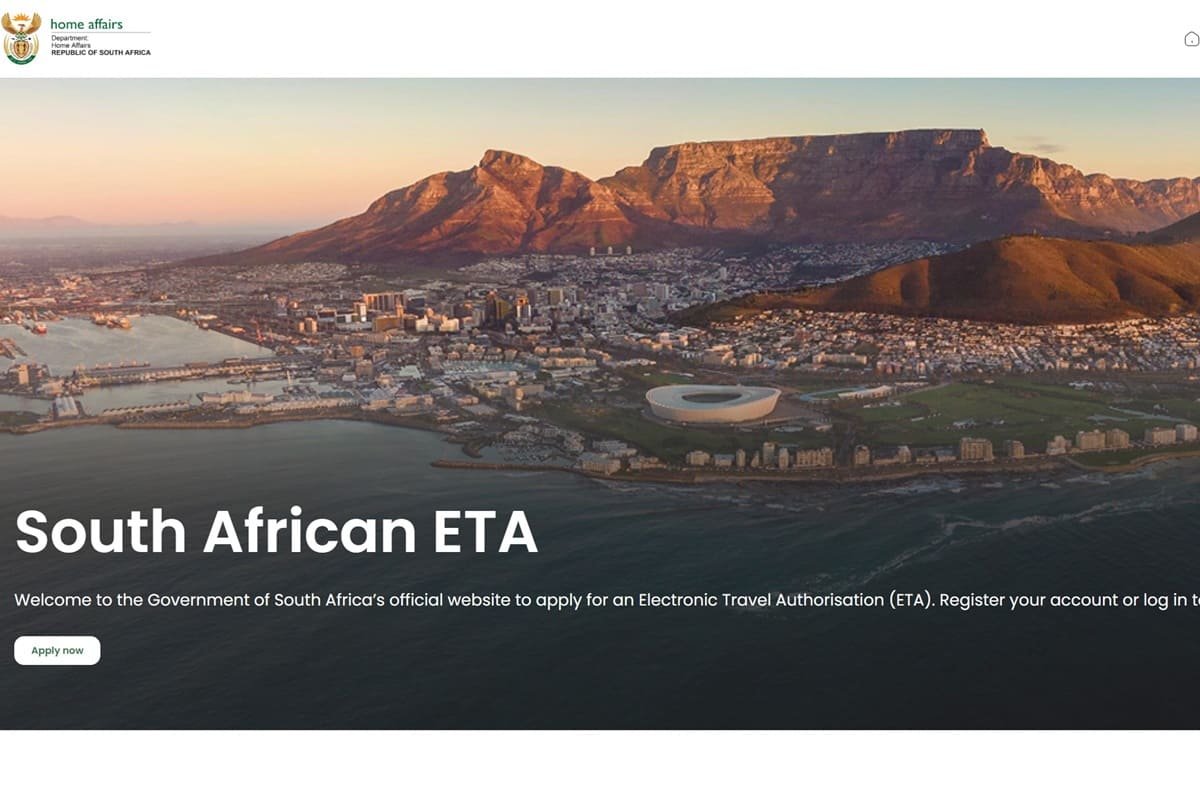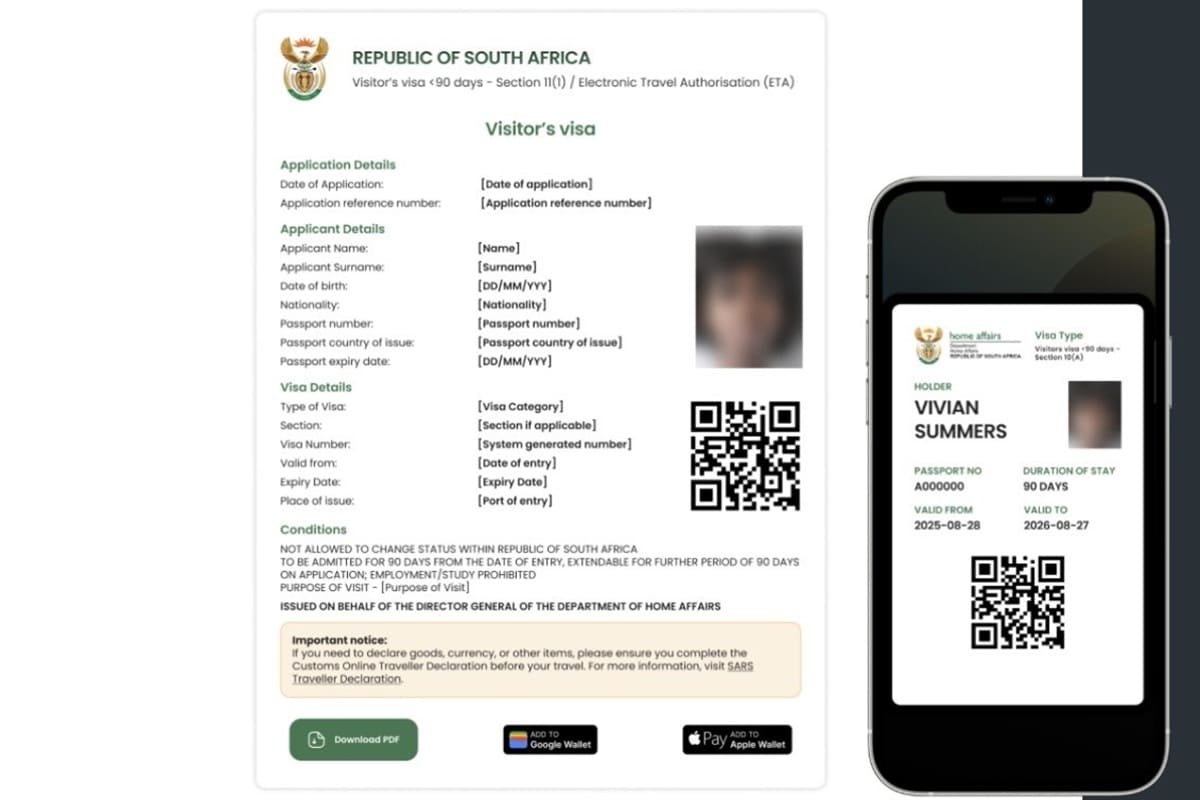South Africa recently announced the launch of its electronic travel authorisation (ETA) system for September 2025. The aim of this system is to digitize and streamline the issuance of tourist visas in the first instance.
In practical terms, travelers requiring a visa will have to apply online before departure, reducing the current e-Visa processing time and the steps involved at embassies. According to the South African authorities, this system will also strengthen border controls while facilitating the entry of authorized visitors.
During his budget speech yesterday before the National Council of Provinces, South African Minister of Home Affairs Leon Schreiber detailed the roadmap for the ETA project and, after presenting the system to President Cyril Ramaphosa, expressed confidence “to launch this world-class innovation by the end of September to coincide with the G20 Leaders Meeting.”
ETA South Africa: no change for visa-exempt travelers (for now?)
Leon Schreiber confirmed that “by the end of September, we will begin the rollout of the digital ETA system for tourist visas, starting with travellers arriving by air at OR Tambo and Cape Town International airports.”
The minister also emphasized the evolving nature of the system, hinting at its widespread implementation: “Over time, the ETA will be expanded to more visa categories and rolled out at more ports of entry. This scale-up will continue until no person can enter South Africa without obtaining a digital visa through the ETA.”
Highlighting the objectives of transparency and security, Leon Schreiber added: “This system system eliminates the space for interference, corruption or delays by using machine learning to automate the application, adjudication and communication of all visa processes.”
“To make the ETA work optimally, we must also link it to all ports of entry so that no person can enter our country unless their biometrics are recorded and match those on their applications,” the minister said.
These announcements therefore leave some uncertainty about the expansion of the ETA, particularly regarding the possibility that travelers currently exempt from visas, particularly Europeans, will also be affected by this electronic procedure in the future.
Leon Schreiber simply stated that the precise list of nationalities that will require this authorisation will only be published when the ETA is officially launched.
South African tourism professionals cautious and concerned
In other countries, the ETA was designed specifically for visa-exempt travelers, as is the case in the United States, the United Kingdom, South Korea, and Israel, thus transforming the freedom to enter without prior formalities into a paid and controlled electronic obligation.
Although for the time being the ETA will only apply to travelers requiring a visa to visit the Rainbow Nation, this stated trajectory is worrying…
In South Africa, this possibility is already worrying professionals who fear that the system will eventually be applied to all travelers:
- David Frost, CEO of SATSA (Southern Africa Tourism Services Association), believes that there is “no rationale for applying an ETA to countries that are already visa-free for short-term stays,” and warns of the need for a “consultative, transparent and thoroughly tested” system.
- Sabine Blehle, CEO of GoVacation Africa, points to the risk of discouraging “spontaneous travel”, who are often older and less comfortable with technology. She believes that solid educational materials will be essential to avoid losing visitors.
- Onne Vegter, head of Wild Wings Safaris, goes further. For him, applying an ETA to visa-exempt travelers would be equivalent to “introducing a visa process to visa-exempt countries”. According to Mr. Vegter, the lack of details on the categories of travelers concerned and on how the system will work “does not bode well for a smooth and well-communicated rollout.”







